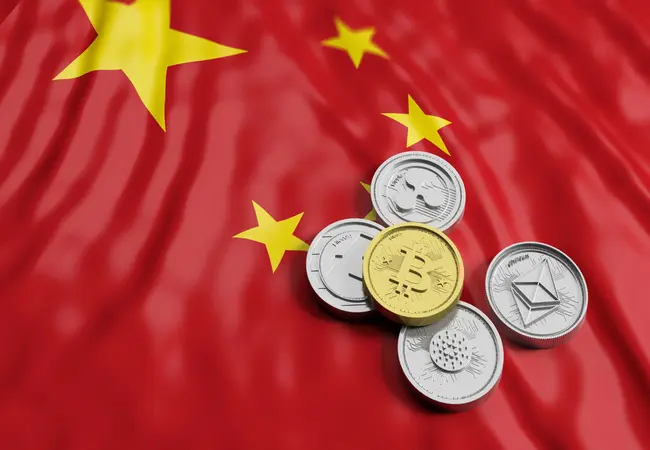Highlights:
- Zhu urges China to reconsider crypto policies amid global acceptance of digital assets.
- U.S. shifts, like Trump’s support and ETF approvals, show increasing crypto acceptance.
- China’s crypto activity has surged despite bans, and regional investments have shown growing international momentum.
Zhu Guangyao, former vice minister of China’s Ministry of Finance, urges the Chinese government to reassess its stance on cryptocurrencies and monitor global developments in digital asset policies. Speaking at the 2024 Tsinghua PBC Chief Economist Forum in Beijing, Zhu emphasized the need to consider both the opportunities and risks posed by cryptocurrencies as international regulations evolve.
China’s former vice minister of finance called for China to study the latest changes in cryptocurrencies and policy adjustments internationally, as it is crucial to the development of the digital economy. He mentioned Trump’s embrace of cryptocurrencies and the U.S. approval of…
— Wu Blockchain (@WuBlockchain) September 29, 2024
Zhu Notes U.S. Crypto Policy Shifts and Trump’s Support
In his speech, Zhu pointed out that U.S. policies on digital currencies have changed significantly this year. He emphasized that the U.S. government’s approach is evolving, especially during the 2024 presidential campaign, where cryptocurrencies are becoming more critical. Zhu mentioned that former U.S. President Donald Trump has openly embraced cryptocurrencies, departing from previous U.S. government positions that labeled crypto as a “destructive power” against anti-money laundering and anti-terrorist financing efforts.
Zhu also pointed out that the U.S. Securities and Exchange Commission (SEC) has approved 11 Bitcoin Exchange-Traded Funds (ETFs), which shows a growing acceptance of digital currencies. Zhu believes these developments mean China should closely watch U.S. policies, as the upcoming election could lead to more changes.
Zhu Urges China to Learn from BRICS’ Crypto Adoption
In addition to the developments in the U.S., Zhu urged China to observe how emerging markets and BRICS nations, such as Russia, South Africa, and Brazil, have taken proactive steps in regulating and adopting cryptocurrencies. He suggested that China could benefit from studying the policies of these countries, which are increasingly embracing crypto assets to strengthen their economies and financial systems.
Despite China’s ban on Bitcoin trading and mining in 2021, which reduced domestic cryptocurrency activity, the country still plays a crucial role in global crypto mining. Recent reports show that over 55% of the Bitcoin mining network is controlled by Chinese mining pools. Despite the government’s strict regulations, digital currencies are essential in China due to their ongoing influence.
#Bitcoin hashrate dominance is shifting to U.S. mining companies.
Chinese mining pools operate 55% of the network, while U.S. pools manage 40%.
U.S. pools primarily cater to institutional miners in America, while Chinese pools support relatively smaller miners in Asia. pic.twitter.com/kepopLWBSD
— Ki Young Ju (@ki_young_ju) September 23, 2024
China’s Crypto Activity Surges as Japan’s Remixpoint Invests
A recent report by Chainalysis indicated that Chinese over-the-counter (OTC) crypto brokers have seen increased activity, with transactions reaching $75 billion in the past nine months. The report highlighted that many Chinese citizens turn to cryptocurrencies to preserve their wealth amid growing economic uncertainty. These trends suggest that despite the government’s ban, interest in digital assets remains high in China.
At the same time, Asia’s continued involvement in the crypto market is seen as Remixpoint, a publicly listed Japanese company that made significant investments in cryptocurrencies. The company disclosed purchases of 64.4 BTC, 130.1 ETH, 2,260.5 SOL, and 12,269.9 AVAX, with a total investment worth several hundred million yen. Zhu raised this example of a neighboring country’s proactive approach to digital assets to illustrate the international momentum building around cryptocurrencies.
Japanese listed company Remixpoint has purchased BTC, ETH, SOL, and AVAX to achieve diversified investment, reduce the risk of yen depreciation, and optimize cash management strategies. The company announced a plan to purchase virtual currencies totaling 1.5 billion yen (about…
— Wu Blockchain (@WuBlockchain) September 29, 2024
Zhu’s call for a reassessment of China’s crypto policies comes as digital assets continue to gain traction globally. While China maintains its cautious approach, the rapid developments in other countries may shortly prompt a shift in its stance.





